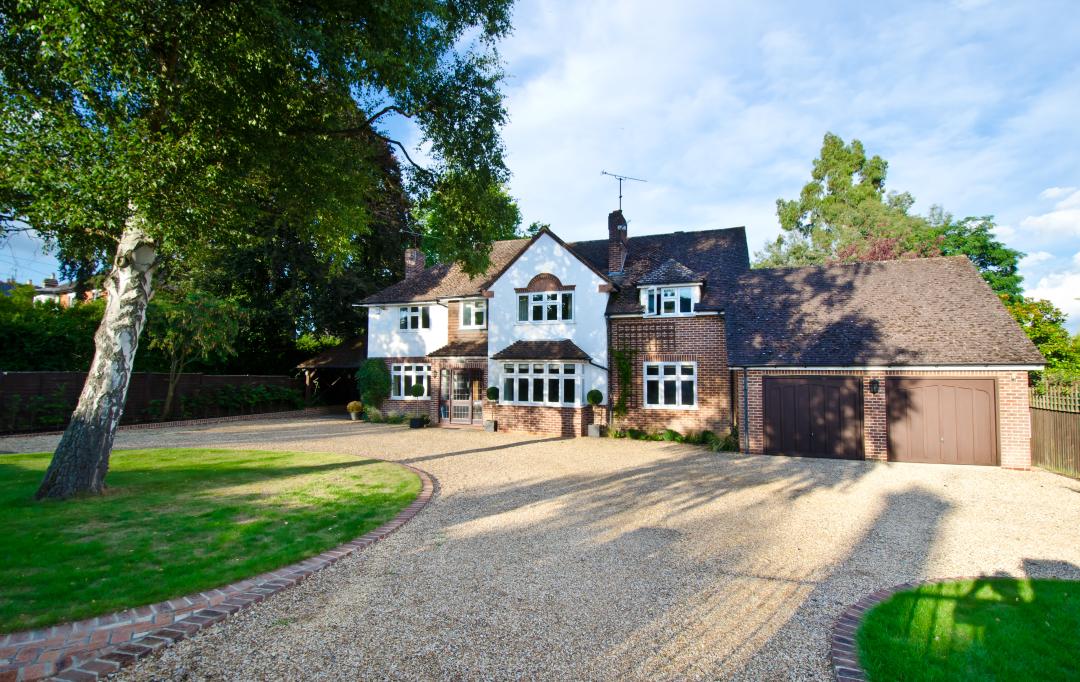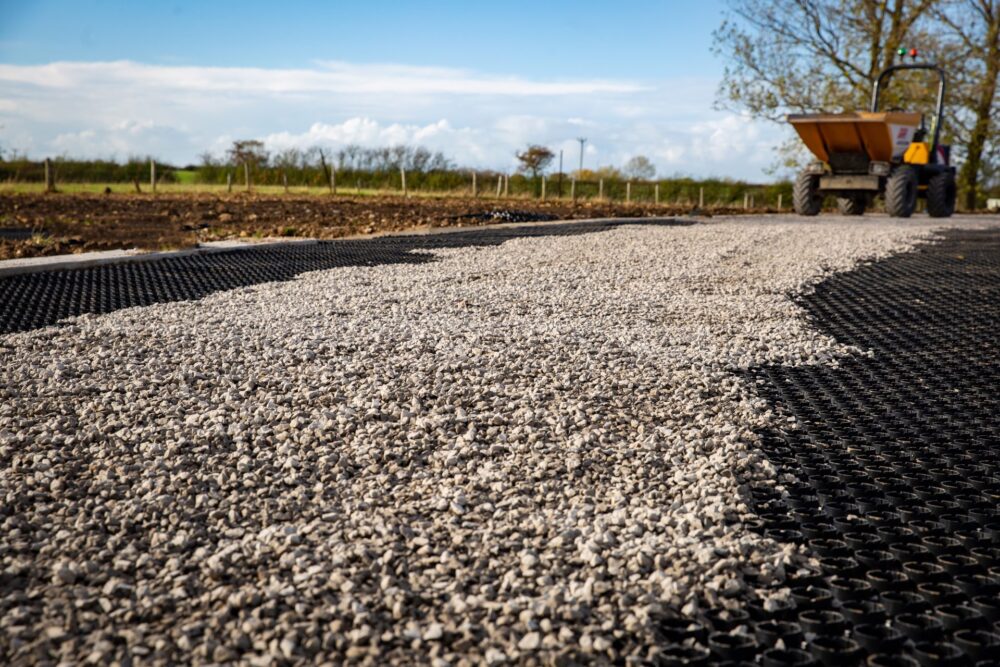Which driveway surface is the best?
All driveway surfaces have pros and cons. Some, such as concrete, can be more problematic than others because it can become uneven, allowing puddles to form, and can also crack. Resin-bonded and resin-bound driveways have become popular but also have their drawbacks, with the traditional gravel driveway continuing to be top choice for most in terms of cost, appearance, maintenance and longevity.
Do I need planning permission for a new driveway?
After severe flooding incidents in 2007, non-porous driveways were considered partly to blame for the volume of rainwater flowing into storm drains and overwhelming the system. New regulations came into force to reduce the issue in future. Today, non-permeable surfaces such as concrete, asphalt, and some block paved driveways may need planning permission.
Permeable driveway surfaces such as gravel do not contribute to flood water. However, although a new gravel driveway is unlikely to require planning permission, it’s prudent to check with your local authority. Beauxfort’s Gravelrings gravel retention grids are fully permeable and SuDS-compliant. They sit beneath the gravel, helping to keep the stones in place while allowing rainwater to drain through a porous mesh backing.
How much does a new driveway cost?
The cost of a driveway depends on three key factors:
- how much excavation/preparation is required
- the size of the driveway
- the surface finish
While low-cost options such as concrete might be initially appealing for a quick-fix, they have an industrial-looking finish and can be prone to cracking. A gravel driveway may be more affordable than you think and cost less than other options such as block-paving. Plus, because gravel driveways are permeable, you won’t get problem puddles. When you’re calculating the cost of a gravel driveway, consider any special features and additional landscaping you’d like to include to give your home a high-end finish. And don’t forget to think about the hidden costs of laying a driveway, such as factoring in how much it will cost to remove your existing driveway.
What are the downsides to a gravel driveway?
There are clear advantages to a gravel driveway over other surfaces. When weighing the pros and cons of a gravel driveway, some may question if the stones will move out of place and into flower beds and borders, leaving bare patches. Installing Gravelrings beneath a gravel driveway surface addresses this issue, as its grid structure helps keep gravel in place, reducing the amount of driveway maintenance required.
A gravel driveway laid without installing a gravel grid system can also be challenging to manoeuvre bikes, pushchairs and wheelchairs over. By installing gravel retention mats such as Beauxfort’s Gravelrings these issues are largely overcome, while retaining that satisfying crunch of a traditional gravel driveway.
What’s the eco-friendliest type of driveway?
Making environmentally sound choices is becoming part of our everyday lives. Often, people are asking how to make eco-friendly garden choices. Choosing porous surfaces in your garden is an excellent place to start. Non-permeable surfaces, such as concrete or asphalt, don’t allow rainwater to drain away. This can cause local flooding and adversely affect wildlife.
Although Gravelrings are made of plastic, they’re designed to stay in place over the long-term. However, they are fully recyclable. Gravelrings come in either black or white to suit a variety of driveway colour schemes, with the black gravel panels made entirely from recycled material. Gravelrings are manufactured in the UK, so have lower transportation costs and the associated Co2 emissions.
Are gravel driveways easy to install?
To achieve the best finish, it’s always sensible to use a specialist contractor when installing a new driveway. While it’s straightforward to install a gravel driveway grid system, experienced driveway installers will ensure that there’s careful and thorough preparation of the ground and that the final driveway is SuDS-compliant.
How can I stop weeds growing on my driveway?
The most beautiful driveways can be spoiled by unsightly weeds emerging through the surface. Gravelrings does not have or require a geotextile membrane attached to the base. Instead it has a free draining integral mesh base which prevents the build-up of silt, discouraging weed growth. However, there is little you can do about grass seeds that are blown on to the surface by the wind or dropped by birds or small mammals.
Will a new driveway add value to my home?
The exterior and grounds of a property can add much to a home’s value. Choosing a driveway surface that creates an excellent first impression boosts a property’s kerb appeal and is a superb way to maximise any potential value gains. As a gravel driveway is synonymous with high end and prestigious homes, it’s an excellent option to consider when renovating a property, or preparing a property for a quick sale.
How do I avoid puddles forming on my driveway?
Non-porous driveways, such as concrete and some types of block-paved drives, can quickly form puddles in heavy rain. When installed with Gravelrings, gravel driveways allow rainwater to drain away easily through a mesh-backed grid system, so puddles don’t form.
How much maintenance does a gravel driveway require?
While you can’t argue against the impact that an impressive driveway has on a property, it shouldn’t be something that takes a lot of time to maintain. Traditionally, gravel driveways kept owners busy with the exhausting task of raking stones back into place. These old-style gravel driveways also suffered from rutting, pitting and general thinning out. Today, creating a low maintenance gravel driveway is easy, simply by fitting Gravelrings as part of the driveway preparation. It’s an easy-to-install gravel retention system that keeps gravel in place and resists weed growth from beneath.
Achieve the perfect gravel driveway with the Beauxfort Gravelrings system. Check out our website www.beauxfort.com for more information about the Beauxfort landscape systems, design inspiration and to request a free sample, or talk to our friendly team about your project by contacting us on 0330 055 2599 or info@beauxfort.com.



